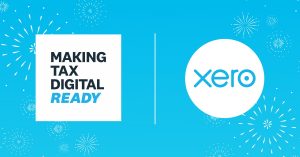
As you know Making Tax Digital (MTD) came into play earlier this year meaning that UK businesses that are VAT registered and have a turnover above the £85,000 VAT threshold will be required to keep their records digitally and submit VAT returns to HMRC using MTD-compatible software via an Application Programming Interface (API). If you want to know more about Making Tax Digital have a look at our MTD section here.
In today’s blog, Emma looks at the types of businesses that can use the digital record keeping requirements for retailers. Some of the following content has been taken from AccountancyAge’s article.
Record keeping requirements
Some cash businesses may have some problems complying with the basic requirements so let’s take a look at these requirements and consider why this might be the case.
The Value Added Tax (Amendment) Regulations (2018 No. 261) state that the following information must be captured within the digital records:
(3) Subject to paragraph (4) the information specified for the purposes of paragraph (1) for each accounting period is—
(a) subject to sub-paragraph (c), for each supply made within the period—
(i) the time of supply, (ii) the value of the supply, and (iii) the rate of VAT charged;
Paragraph (c) provides some relaxation from these rules:
(c) where more than one supply is recorded on a tax invoice and those supplies are either—
(i) supplies made which are required to be accounted for in respect of the same prescribed accounting period and are subject to the same rate of VAT, or
Relaxation for retailers
Fortunately, all is not lost. Provision has been made in the Regulations to relax the above requirements in particular circumstances:
(4) The information specified in paragraph (3) may be varied by direction of the Commissioners to make provision about—
(c) the operation of retail schemes under Part 9 of these Regulations (supplies by retailers);
Paragraph 4.5 of the VAT Notice provides that relaxation in a paragraph which has the force of law:
In addition to the records listed in paragraph 4.3 above, if you account for VAT using a retail scheme you must keep a digital record of your Daily Gross Takings (DGT). You are not required to keep a separate record of the supplies that make up your DGT within functional compatible software.
What is a retailer?
Retail is the process of selling consumer goods or services to customers
Accounting for VAT in the normal way does not require businesses to issue a tax invoice to unregistered customers, but it does require them to identify, for each sale, the tax exclusive value and the VAT, and to be able to produce periodic totals of those amounts. Many cash businesses will not be able to do this, because of the level of information they retain in relation to each sale they make – even if they use electronic tills.
Therefore, in accordance with the definition above, and as HMRC has also kindly confirmed to us, cash businesses are considered to be retailers for these purposes. Cash businesses are likely to be covered by the point of sale scheme. This applies where the business is identifying the VAT rate when they make the sale and, if all sales are standard rated, they simply apply the VAT fraction to calculate the VAT due. As there is no retail scheme calculation per se to undertake then these businesses often do not realise that they are using a retail scheme.
So, these cash businesses can therefore benefit from the relaxation set out above in relation to their retail sales ie they can simply record their Daily Gross Takings in their digital records. They do not need to record each individual sale, nor is a digital link required between their tills and their accounting records – the input of the Daily Gross Takings is the start of the digital journey.
Any non-retail sales will need to be recorded in the digital records on a supply-by-supply basis as they do not benefit from this relaxation.
Some of the above content has been taken from AccountancyAge’s article.
Author: Emma Hardwick, Plus Advisory Manager, Plus Accounting
Any views or opinions represented in this blog are personal, belong solely to the blog owner and do not represent those of Plus Accounting. All content provided on this blog is for informational purposes only. The owner of this blog makes no representations as to the accuracy or completeness of any information on this site or found by following any link on this site.




